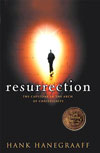When we talk about Saint Patrick, he was a saint as in the patron saint of Ireland, not in the Roman Catholic sense of being canonized. He was not Irish, interestingly enough, but a missionary to Ireland from Scotland, and when he arrived in Ireland most of the Irish practiced a nature-based form of paganism. Saint Patrick’s Day is celebrated March 17th, and that is to commemorate the death of Saint Patrick in the 5th century. The first Saint Patrick’s Day parade did not take place in Ireland. It took place in New York City in 1762 and, ironically, up until the 1970s the Irish regulations mandated that pubs in Ireland be closed March 17th. In the mid-90s the Irish saw Saint Patrick’s Day as an opportunity to enhance tourism.
For us as Christians I think it’s most noteworthy that Saint Patrick’s Day falls during the Lenten period. Lent, of course, the 40 days during which we remember our sinfulness and which we repent of our sins and recognize afresh God’s grace and forgiveness. This week is the final week, Holy Week, which begins the day after Palm Sunday. On Thursday we honor the memory of the final Passover supper, Good Friday we celebrate the crucifixion of Jesus Christ, and we can say celebrate in that the crucifixion of Jesus Christ is at once the most brutal and yet the most beautiful act in all of human history. Brutal in that you have the truly innocent Man who suffers and dies for the sins of the world; beautiful in that through this suffering redemption is offered to humanity. All of this culminates on Easter Sunday in which we celebrate the resurrection of Jesus Christ.
Paul said in 1 Corinthians 15 “If Christ is not raised your preaching is useless and so is your faith.” So the resurrection of Jesus Christ is not just something we celebrate. It is the central pillar on which all of Christianity rises or falls. Christianity cannot survive an identifiable tomb containing the corpse of Christ. Christ rose physically. If we had been in the grave when Christ rose from the dead we would have seen dust fly off the very slab on which Jesus Christ lay. It is because of His physical resurrection that we know that we too will rise immortal, imperishable, incorruptible. We too will be changed in a moment, in the twinkling of an eye. There’s a one to one correspondence between the body that dies and the body that rises. That doesn’t mean that every atom is resuscitated, but it does mean that there’s continuity between our present body and the new body that we will receive, a body that is resurrected such that our DNA flourishes to perfection.
What happens to our bodies goes hand in hand with what happens to the universe, for the universe too, according to the Apostle Paul will be liberated from its bondage to death and decay. There’s going to be a new order of things. No more death, mourning, crying or pain, for the old order of things will have been removed and God Himself will live with us. But, of course, as the box top of Scripture, paradise lost will become paradise restored. So this week is not just an ordinary week. This is our week and all of us should be equipped to communicate that the resurrection is not something we believe through blind faith, but rather something we accept through faith in evidence. Christ suffered fatal torment, the tomb was empty, He appeared and gave many convincing proofs that He was alive and a band of scared, scattered disciples were transformed into lions of the faith who turned an empire upside down.
I think if we ever caught the beauty and the passion of resurrection in our own epic of time we could change our world in our lifetime. The real problem is not pagans who exercise their job description. It’s Christians who are not exercising their job description, able always to be ready to give an answer and a reason for the hope that lies within them with gentleness and with respect.
Recommended Resources:
Resurrection $14.00 Order NOW! |

